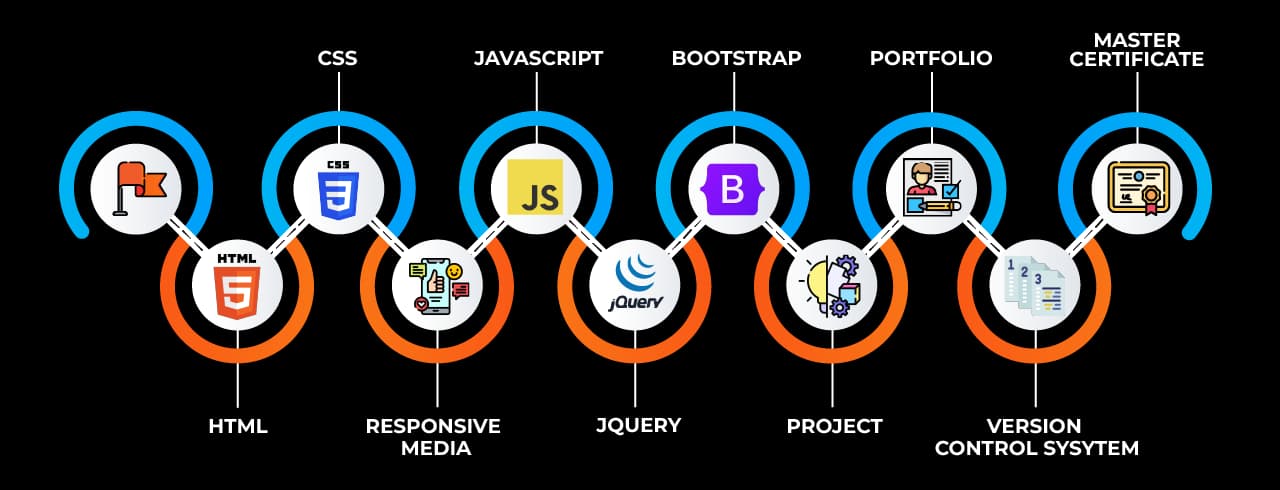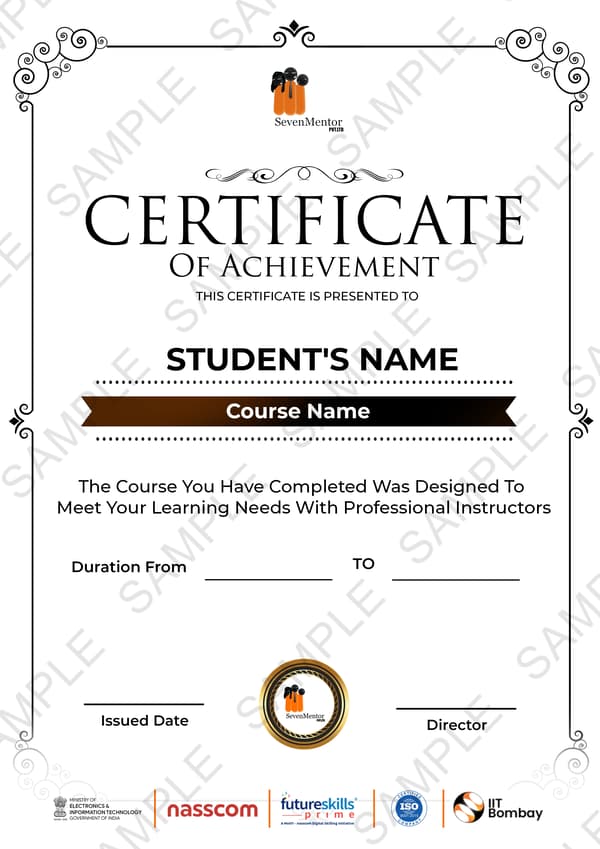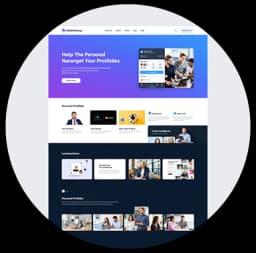About Full Stack Course
Full Stack course from Bangalore is meant for those who are eager to know how full-fledged web applications are created and made to work in practical settings. Instead of concentrating on just one service, this course explores the interplay between frontend and backend as well as the way information flows from user interface to the server through encryption and how that data gets sent over a network and scaled. This full-stack approach is also the reason why a lot of individuals these days opt for a full-stack development course over fragmented or tool-specific courses.
At SevenMentor, the course takes into consideration how software engineering teams actually work in reality. It follows standard international web developer certification and is based on practical use. Whether students are studying a web development bootcamp for beginners or taking in-depth full-stack developer training, signing up for a Full Stack course in Bangalore lets them tap into changing industry standards right from the heart of one of India’s most dynamic tech hubs.
What Can You Learn from the Full Stack Course at SevenMentor Training?
The Full Stack classes at SevenMentor aim to impart in students a sound understanding of how web applications are designed, organized, and implemented in professional environments. Instead of isolated coding puzzles, students get exposure to the development process, dealing with more complicated system architecture decision-making and integration with other external systems. Which is why this program is a great choice for anyone who wants to earn a full stack certificate based on real-world skill.
The course also facilitates a path of structured learning, such as the Java Full Stack Developer Course, modern front-end development approaches like Bootcamp, or backend integration ideas. Whether you are looking to join the best web development course or want to achieve a respected full-stack developer certification, your education will be focused on being as relevant in today’s industry as possible.
Why Choose SevenMentor for Learning Full Stack?
Choosing the right institute is the most important when you are looking for Full Stack Training in Bangalore. SevenMentor is different from others based on the job-oriented training, real-time practice & placement assistance model. The learning experience is like the actual development team, which allows participants to learn how teams really work together, their process, and delivery in a professional setting.
SevenMentor also provides support for aspirants who are looking to achieve the technical skills that possess worldwide recognition, including Google Web Developer Certification and an advanced web developer online program. Well, with the contemporary modes of learning, intense academic mentoring, and unlimited professional exposure, Full Stack Training at SevenMentor is an ideal choice for you if you are looking for the best web development courses near me in Bangalore.
Why Should You Take This Course?
A Full Stack course in Bangalore isn’t just about learning a set of technical skills; it’s also about preparing oneself for the long haul in an ever-changing tech world. While frameworks and platforms come and go, professionals who see systems as a system (the whole) adapt much faster. This is why full-stack learning it future ready, especially if you are juggling between classroom learning and the various web development courses online that one can learn from.
This course is suitable for anyone who would like to transition into app development or gain a better understanding of how modern web technologies work, while building practical applications along the way. By enrolling in Full Stack classes in Bangalore, students set the stage to expand across startups, enterprise or digital-first companies.
Benefits and Importance of Certification
Certification will be useful to verify your skills and learning discipline. A Full Stack certification course that enables learners to demonstrate mastery over the verified knowledge and stand out in the competitive job market. “Structured certifications,” for example, full-stack developer certification and web development courses online with certification, are something that not only add credibility but also augment professional confidence.
SevenMentor takes the responsibility to secure your certification. We will make it easy for you. This method helps students who are searching for the best online web development courses with certificates that actually reflect real-world readiness.
Full Stack Course with Certification
A Full Stack course with certificate from SevenMentor serves as a ladder between your cutting-edge skills and the widely acclaimed recognition of them. Certification verifies a learner has a grasp of full-stack concepts, development processes, and systems-level thinking. This is particularly useful if you are looking for full stack developer course with placement support as certification gives a boost to your resume and confidence in interviews.
Career Scope After Full Stack Training
The Full Stack Course in Bangalore has opportunities increasing further as companies need professionals who can do both client-side and server-side development. Thanks to its startup ecosystem, SaaS companies , and global technology centers, learners having full stack developer training in Bangalore have opportunities in numerous sectors.
They also help prepare graduates to go on and study for higher-level qualifications, whether full-stack certification or another web developer’s specialization that can drive long-term career growth.
What You’ll Cover in the Full Stack Program
The process adds the understanding of how web systems are planned, constructed, tested, optimized, and maintained. It is about integrations thinking more than fragmented learning, application lifecycle understandin,g and performance considerations. This format is suitable for students who like the full-stack web development course formats and would want to learn in a front-end developer bootcamp kind of style.
How to Learn Full Stack Development?
The best way to learn full-stack development is through a combination of theory, practicals, and problem-solving. Free web development courses with certificates may introduce the basics and elements, but systematic learning can guarantee depth, consistency, and clarity. When you enroll in online full-stack classes in the Bangalore curriculum, you get more than just training for the Certificate of Completion.
Full Stack Course with Placement Support
SevenMentor also provide career support to the learners, Career guidance, Interview and placement assistance. As is natural with any bootcamp course, results are always correlated to the effort and performance of each student, but our full stack developer course with placement support is a sure way to take your next step into the job market in confidence.
Online Full Stack Course
The SevenMentor Online Full Stack Course in Bangalore is a boon for working professionals who crave flexibility as well as depth of learning. Learners away from the classroom and online counterparts receive the same quality of live instruction, practice time, and interactive dialogue. This curriculum is the best fit for those who are looking for web developer courses online or those who want to learn web development online with an expert mentor and certification assistance.
Corporate Full Stack Training
SevenMentor’s corporate Full Stack course in Bangalore is ideal for companies that want to upskill their development teams. The training is designed to incorporate company-specific tools, workflows, and scalability for immediate workplace application. Corporate learners reap the benefits of directed learning paths, hands-on exposure, and certification-ready results that promote individual team growth.
 Learn To Build Scalable Web Applications at SevenMentor Institute’s Full Stack Training
Learn To Build Scalable Web Applications at SevenMentor Institute’s Full Stack Training Accelerate Your Career and Secure High-Paying Jobs After Industry-Relevant Certification
Accelerate Your Career and Secure High-Paying Jobs After Industry-Relevant Certification Master Frontend, Backend, and Database Technologies for End-to-End Development
Master Frontend, Backend, and Database Technologies for End-to-End Development







